Above: Pakistan’s Supreme Court
While Pakistanis are celebrating the disqualification of Prime Minister Nawaz Sharif, questions are being raised whether the powerful army is using the legal fraternity to do its dirty work
~By Seema Guha
Popular opinion in Pakistan is lauding the Supreme Court for stripping Nawaz Sharif of his prime ministership. People are delighted that the rich and the powerful are now subjected to the law of the land. The judiciary is seen as playing its part in making Pakistan’s fledgling democracy answerable to people. However, critics have lambasted the verdict as a judicial coup.
Corruption among the political class is a plague that has dogged Pakistan and India and many are celebrating that the prime minister has been brought to his knees with a judgment, even if flawed. The larger concern, however, is whether the powerful Pakistani army is using the judiciary to do its bidding. Realising that the world today will no longer tolerate a military coup, the army is now using the judiciary to do its dirty work.
Nor has the judiciary covered itself with glory in Pakistan. Going by the past record, the judiciary has long been the handmaiden of the army, sanctifying military coups under the garb of civilian incompetence. The stark reality is that no elected prime minister of Pakistan has been able to last his full term since its independence. This is also the third time that Sharif has unceremoniously been ousted from power after winning a free and fair election.
Remarking on the verdict, Michael Kugelman of the Wilson Center in Washington said that there is a “pretty strong precedent of the Pakistani judiciary being very active and essentially sending elected officials packing”. Kugelman added that the Panama Papers case was “more about his family” than Sharif himself.
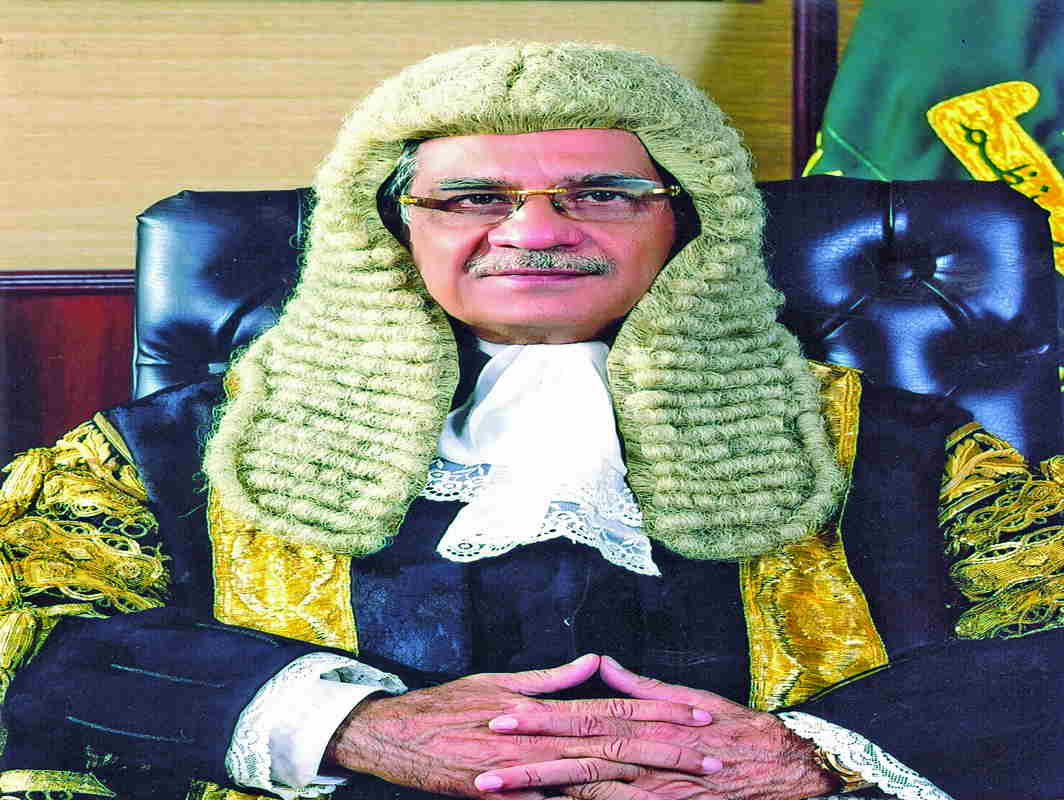
The current popularity of the judiciary does not mean that the power equation in Pakistan has changed. The military remains at the core and continues to yield enormous power. Neither the judiciary nor the political class is in a position to tame the army. The judiciary is not emerging as a power centre, but is bent on giving the men in uniform a free hand, perhaps for its own survival.
Former chief justice of Pakistan Iftikhar Chaudhry, at one time regarded as the man who fought for democracy in Pakistan and took on General Pervez Musharraf, is no hero. He was part of a Supreme Court bench which dismissed a petition against Musharraf’s 2002 orders, amending the constitution to give the president powers to dismiss the National Assembly and appoint governors and service chiefs at will. It is another matter that Musharraf later dismissed and arrested his chief justice.
CHEQUERED HISTORY
In the elections of 2008 where the PPP won a decisive victory, Musharraf was defeated and under threat of impeachment. When President Asif Zardari also refused to restore Chaudhry as chief justice, a lawyers’ movement broke the new government’s resistance. The chief justice became an immediate hero. So despite his status as a fighter for democracy, Chaudhry also collaborated with the military dictator at one time. Ironically, Sharif as opposition leader, supported the restoration of Chaudhry as chief justice.
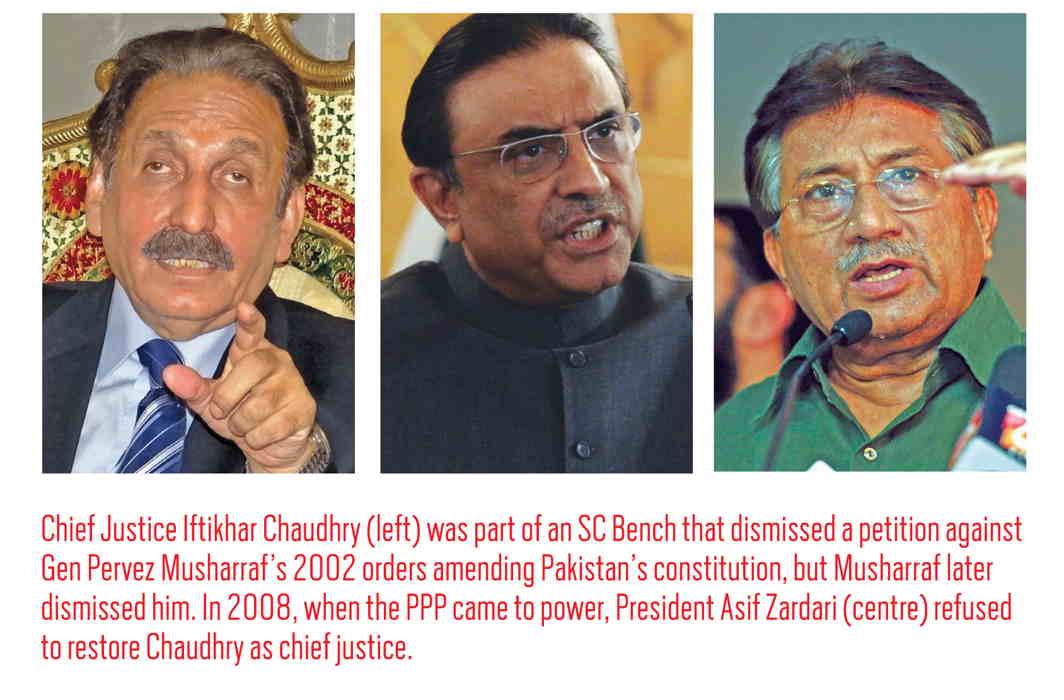 The judiciary is as fragile as Pakistan’s democracy. The apex court has upheld military dictators who subverted the constitution. Among those who have showered lavish praise on the Supreme Court is military dictator Musharraf. He has sent out a video praising the five-bench judgment which has literally finished Sharif’s political life. He will be debarred from ever contesting elections.
The judiciary is as fragile as Pakistan’s democracy. The apex court has upheld military dictators who subverted the constitution. Among those who have showered lavish praise on the Supreme Court is military dictator Musharraf. He has sent out a video praising the five-bench judgment which has literally finished Sharif’s political life. He will be debarred from ever contesting elections.
Musharraf said: “I fully support this decision of disqualifying Nawaz Sharif as it is a very good one.” He hailed the judgment as “brave one’’. Musharraf, who subverted the constitution and rigged elections, now stays in London and Dubai and has escaped the law because he had the support of the powerful Pakistan army. He and Sharif have been sworn enemies ever since the former army chief toppled the elected PM in a bloodless coup in 1999.
TESTY TIES
It is well-known that Sharif and the army have always had a testy relationship. It is ironic, given the fact that Sharif began his political career as a protégé of military dictator Gen Zia-ul-Haq, who was responsible for Islamisation of the army and many other evils that have now come home to roost. Gen Zia wanted to encourage Sharif to take on the PPP and the Bhutto clan. Sharif, the son of a rich industrialist, was sent to politics by his father to protect the family’s business interests. Sharif was not a great businessman, but came into his own as the leader of the Pakistan Muslim League. But following the Musharraf coup, Sharif became a bitter critic of the army.
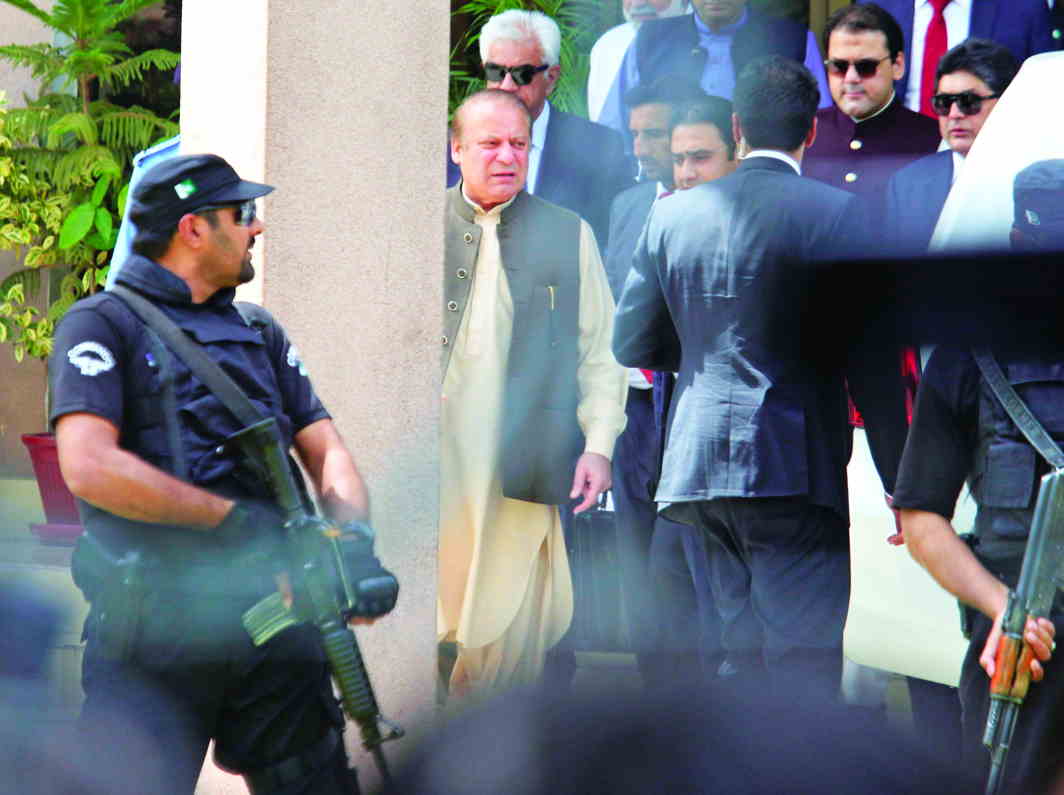
Not surprisingly, Sharif was ousted on the basis of an Islamic law, introduced in the constitution by Gen Zia in 1985. He wanted all rulers to be clean and honest. Sharif was punished for not declaring an amount of 10,000 dirhams in his nomination papers for the 2013 elections. The amount, it appears, was never withdrawn by the former PM. The judges said it was of no consequence that Sharif had not taken the money. What was significant was that he went against the Islamic tenets of ameen and sadiq (honesty and moral uprightness).
The world knows that no civilian government in Pakistan has control of foreign policy, especially ties with important countries like the US, Afghanistan and India. Sharif’s desire for peace with India ran against the army’s vision. The Lahore peace effort was not in tune with the army’s thinking. In fact, Musharraf refused to meet former prime minister Atal Bihari Vajpayee in Lahore, saying he was busy with a visiting PLA delegation. Later, he launched Kargil war, presumably without keeping Sharif in the loop.
This time too, Prime Minister Narendra Modi and Nawaz Sharif’s attempts at peace-making resulted in the attack on the Pathankot military base. The civilian government and the army were not on the same page.
A “characterless person”?
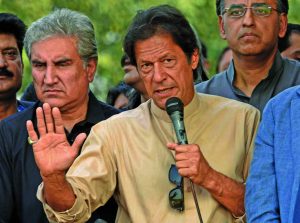
In his hour of triumph, after getting Nawaz Sharif out of office, Imran Khan has been hit by a personal scandal. Former party colleague Ayesha Gulalai has quit his party, Pakistan Tehreek-e-Insaf (PTI), and charged him with sending her inappropriate text messages. Gulalai, who won the 2013 election from a reserved seat in the tribal area of South Waziristan, said Khan was a “characterless person’’ and the “honour” of women in the PTI was not safe.
For all those who know Khan, this is not surprising. The playboy is known to have dated a string of beautiful women and married Jemima Goldsmith, the daughter of a Jewish billionaire. Though the marriage broke down, the couple remain good friends. Khan’s womanising did not end with retirement from cricket. The list of women in Khan’s life is endless, but Sita White, the American heiress with whom he had a love child, was a major sensation. Khan also married Rehman Khan, a journalist and talk show host, who moved back to Pakistan from the UK. But the marriage was short-lived.
Will the latest scandal impact his political career? This is not likely in the patriarchal set-up in the subcontinent. His supporters will say it is political vendetta and that Gulalai is being used by those who wish to tarnish Khan’s image. Fingers will be pointed at Sharif’s Pakistan Muslim League and all those who want to see the end of Khan’s career. But many women activists will not vote for Khan.
FLAMBOYANT IMRAN
Meanwhile, all through Sharif’s term, Imran Khan, the cricketer-turned-politician of the Pakistan Tehreek-e-Insaf (PTI) was growing more powerful by the day. His movement against Sharif and his family brought Islamabad to a standstill in 2015. After the Panama Gate revelations last year, Khan was planning another long march, but the Supreme Court intervened by announcing its decision to investigate Sharif’s family on corruption charges. Khan held a thanksgiving rally following the announcement. He has been the blue-eyed boy of the army and many believe that the men in uniform had gently nudged the flamboyant Khan’s political career. Some say that despite the backing of Rawalpindi, Khan was unable to win the 2013 polls. The army, instead of openly siding with Khan, got the judiciary to act and deliver its devastating judgment to get Sharif out.
WHAT LIES AHEAD
What does the future now hold for Pakistan? It is unlikely that the Supreme Court will reverse its verdict when Sharif challenges his ouster. The former prime minister is known to be a fighter, but most observers believe that the Supreme Court has cooked his goose. Will this be the end of the Sharif clan? His children, including heir apparent Maryam Sharif, are likely to be handed out a guilty verdict. The army so far has not publicly commented on Sharif’s ouster.
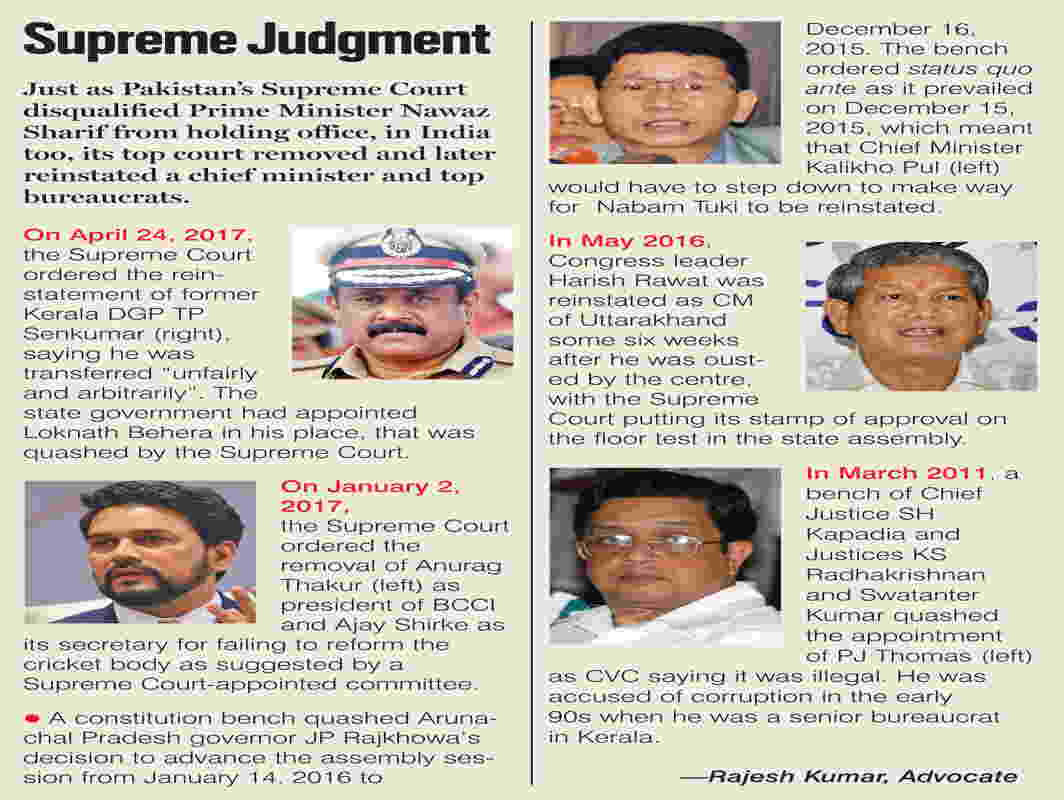 But he is not a politician they wish to do business with. For now, Khan is their best bet if he can manage to get the required votes. However, equations might change once he resists the diktats of the men in uniform. Invariably, politicians known to be close to the army, have a tough time when in the hot seat. For Pakistan, it will be more of the same thing with the army calling the shots.
But he is not a politician they wish to do business with. For now, Khan is their best bet if he can manage to get the required votes. However, equations might change once he resists the diktats of the men in uniform. Invariably, politicians known to be close to the army, have a tough time when in the hot seat. For Pakistan, it will be more of the same thing with the army calling the shots.
Many in India fear that with a weak government in Islamabad, the army may intensify its firing along the border with Kashmir and stir more trouble. But then, the Pakistani army has always been in control of the country. When did any civilian dictate Islamabad’s India policy? Not since Independence.


